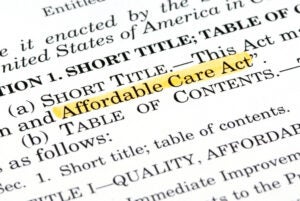Second Verse, Same as the First: Senate Reconciliation Language Failes to Fix Paperwork Burdens, Other Barriers to Marketplace Coverage

With the passage of H.R.1, the House of Representatives’ version of the budget reconciliation bill that will advance President Trump’s domestic policy agenda, all eyes are turned towards the Senate. In a new CHIRblog, ACA experts Karen Davenport, Stacey Pogue, and Sabrina Corlette discuss how draft legislation emerging from the Senate would create enrollment barriers to Marketplace coverage that largely mirror the House’s reconciliation bill.







